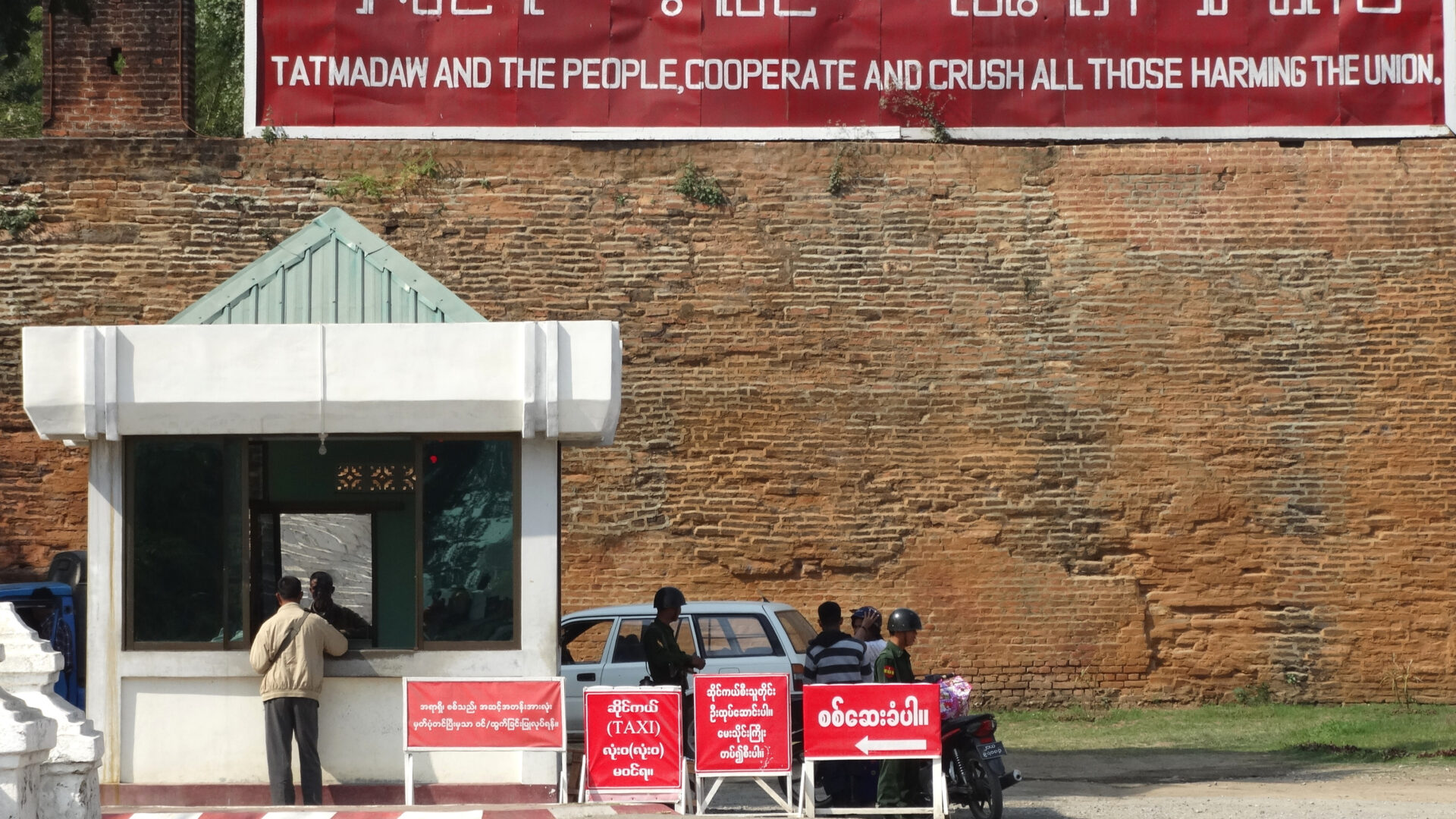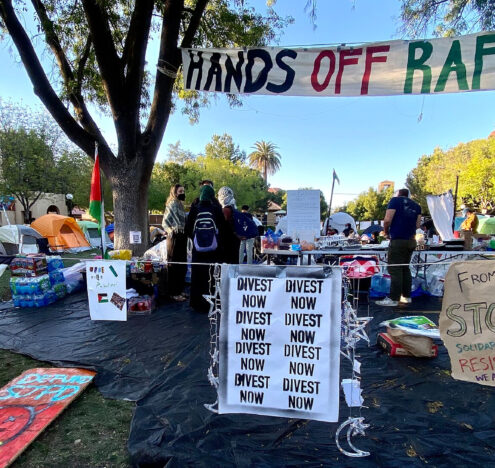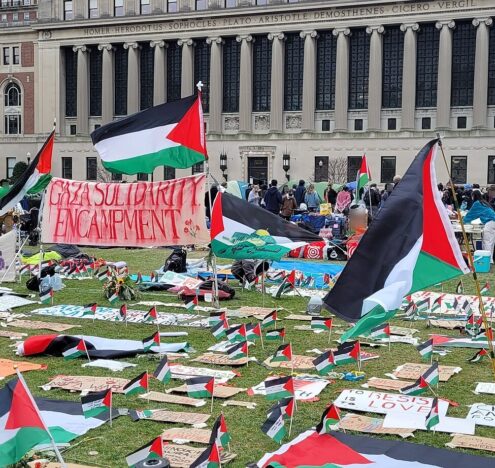On Oct. 27, 2023, the Three Brotherhood Alliance — consisting of the ethnic armed outfits the Arakan Army (AA), the Myanmar National Democratic Alliance Army (MNDAA), and the Ta’ang National Liberation Army (TNLA) — launched Operation 1027 as part of a push against Myanmar’s ruling junta. Some 10,000 Alliance fighters attacked military, police, and government positions across the northern Shan State, toppling around 100 military posts and seizing abandoned weapons.
The operation has continued since, with anti-junta fighters making notable gains and taking over military posts and key towns near the Chinese border. Meanwhile, Operation 1027 has further entangled Beijing in Myanmar’s domestic politics.
China has played a significant role in Myanmar’s peace process for some two decades. Before brokering a temporary ceasefire that followed formal talks on Dec. 14, China had spent a month playing both sides of the conflict. The ceasefire between the junta and rebel groups was eventually reached in mid-January. But it almost immediately became clear that Beijing’s solutions did not mesh with the complex reality on the ground.
In fact, just one day after the ceasefire went into effect, the TNLA accused the junta of breaking the agreement by launching some 19 artillery attacks on four townships. Meanwhile, the ceasefire had never compelled ethnic armed organizations (known as EAOs) outside of the Three Brotherhood Alliance to pause their fighting.
Take, for example, the events of Jan. 26. The Pa-O National Liberation Army (PNLA) seized the junta’s Light Infantry Battalion 424 in the town of Hsi Hseng, located in the southern part of Shan State. Meanwhile, the PNLA’s political wing, the Pa-O National Liberation Organization, declared that it had exited the (also Chinese-brokered) National Ceasefire Agreement of 2015.
Amid the high drama of the last two months, yet another important group — the National League for Democracy, the party deposed by the 2021 coup — joined in on attacks against the junta. The National League for Democracy has representatives in the National Unity Government in exile. Although the exiled government’s military unit, the People’s Democratic Force, has been fighting the junta since November 2022, Operation 1027 has galvanized its ranks. In early February, for example, PDF forces gained ground by raiding a junta military base and capturing San Pya, a village in the Mandalay region.
If China’s ceasefire terms were already far-fetched, the sharp rise in fighting left the agreement entirely obsolete.
Political Divisions Among Armed Groups
It is undeniable that China commands influence over Myanmar’s ethnic armed organizations, or EAOs, but that sway is limited. Often sharp political divisions between the armed groups make it difficult to foresee what events may unfold.
Before the 2021 military coup, the Chinese government participated in peace talks — known as the “21st Century Peace Conference” — that included EAOs and Aung San Suu Kyi’s NLD-led government. At the time, China attempted to persuade the United Wa State Army (UWSA), Myanmar’s most powerful non-state armed group, to sign the National Ceasefire Agreement. Although the UWSA had long enjoyed Beijing’s backing, China could not convince the armed group to lay down its arms.
Since the 2021 coup ousted the NLD-led government, peace talks have stalled. Meanwhile, China has fostered closer ties with EAOs — even as it provided support to the junta regime — and has held a slate of negotiations between the two sides throughout the last two years.
Closer ties or not, China has yielded little success bringing EAOs to the negotiating table. In December 2021, for instance, the leaders of the Federal Political Negotiation and Consultative Committee — a bloc of seven powerful ethnic armed groups linked to China — rejected Beijing’s plea for it to sign onto a ceasefire.
Operation 1027 has further entangled Beijing in Myanmar’s domestic politics.
Apart from the Kachin Independence Army, none of the FPNCC members formally backed the pro-democracy uprising that followed the junta’s takeover. Before Operation 1027, China held several meetings with FPNCC leaders, including Three Brotherhood Alliance leaders. In March 2023, FPNCC members met with a Chinese special envoy that visited Myanmar. After that meeting, they issued a statement that reaffirmed support for China’s involvement in Myanmar’s domestic politics. China’s influence is a plausible explanation behind the way EAOs have not publicly backed the pro-democracy movement.
With the launch of Operation 1027, however, there are fresh questions about how much authority China commands over EAOs. Knowing the limits of its influence, Beijing unofficially dispatches representatives with a closer ethnic relationship to EAOs with the hope of convincing the armed groups to support the military government.
But the EAOs still enjoy a great deal of autonomy in Myanmar’s domestic political scene — and their dreams of an independent political future within the country curtail Beijing’s attempts at mediation.
Also important is the statement the FPNCC released in March 2023, which insists on its desire to establish a federal democratic union and posits that ethnic minorities ought to forge peace with the rest of Myanmar and back the project.
Borderland Stability
When it comes to the junta and the rebellious armed groups, China will likely push forward with its current policy of effectively playing it by ear. As for the immediate, Beijing is likely to focus on restoring stability in the restive regions on its border with Myanmar, where ever-growing crime syndicates have long been the source of headaches.
In November 2021, China’s Ministry of Public Security said that more than 31,000 Chinese nationals were involved in online fraud gangs operating in northern Myanmar. Joint patrols on the Mekong River — involving law enforcement from China, Laos, Myanmar, and Thailand — offered little success in clamping down on the crime.
In mid-2023, cyber security fraud tested China’s patience with the junta. That’s why the Chinese government stood by when the Three Brotherhood Alliance took over several towns and vowed to eradicate the cyber fraud industry. In fact, the now-defunct ceasefire only materialized after Beijing issued a slate of arrest warrants for 10 partners and allies of Myanmar’s military, including Bai Suocheng, a key ally of junta general Min Aung Hlaing.
Against this complex web of Myanmar’s domestic divides and Beijing’s hamstrung influence over both the junta and the armed groups fighting it, China will not move definitively to resolve territorial issues in Myanmar. Instead, it will push to restore calm in the borderlands. In the future, Beijing will likely pursue an event-by-event policy — whether or not it helps bring peace to Myanmar.






















